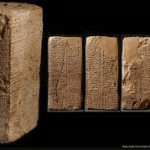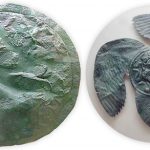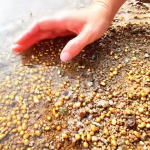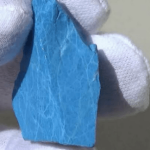Discovering Poland’s Oldest Copper Axe Connected to Trypillia Culture in Hrubieszów District: An Exploration of Prehistoric Craftsmanship
In a groundbreaking archaeological discovery, researchers have unearthed a remarkable artifact in Poland’s Hrubieszów district—a copper axe dating back to the 4th to 3rd millennium BCE. This ancient relic, believed to be associated with the Trypillia culture, provides invaluable insights into the craftsmanship and technological advancements of prehistoric societies in the region.

The excavation site, located in southeastern Poland, has long been of interest to archaeologists due to its rich historical significance. However, the recent discovery of the copper axe has exceeded all expectations, shedding new light on the cultural practices and material culture of early human civilizations.

The significance of the find lies not only in its age but also in its association with the Trypillia culture—a complex society known for its advanced agricultural practices, distinctive pottery styles, and extensive trade networks. The presence of the copper axe suggests a sophisticated level of metallurgical knowledge among Trypillian craftsmen, as well as their ability to harness and utilize natural resources for technological innovation.

Furthermore, the discovery challenges existing narratives about the development of metallurgy in prehistoric Europe, hinting at the possibility of earlier and more widespread metalworking activities than previously thought. It underscores the importance of reevaluating our understanding of ancient societies and their contributions to human history.
The excavation process has been meticulous, with archaeologists carefully documenting the surrounding soil layers and artifacts found in proximity to the copper axe. This comprehensive approach aims to piece together the broader context of the find, including its potential ceremonial, economic, or symbolic significance within the Trypillia culture.











